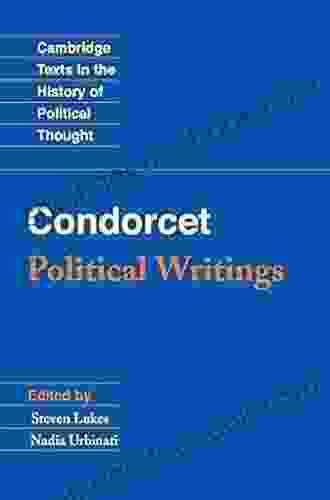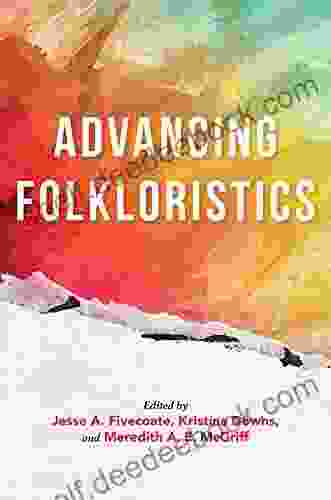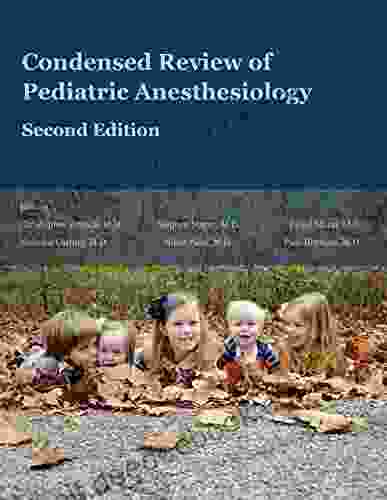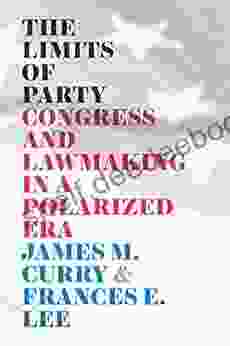The Limits of Party: Unveiling the Boundaries of Political Parties

4.7 out of 5
| Language | : | English |
| File size | : | 3895 KB |
| Text-to-Speech | : | Enabled |
| Enhanced typesetting | : | Enabled |
| Word Wise | : | Enabled |
| Print length | : | 322 pages |
| Lending | : | Enabled |
Political parties are pivotal institutions in the democratic process, acting as intermediaries between citizens and governments. They mobilize public support, articulate policy positions, and contest elections to gain political power. However, the ability of parties to shape political outcomes is not boundless. They operate within a complex web of constraints that define their limits and influence their effectiveness. In this article, we will delve into the various factors that delineate the boundaries of party power, exploring the multifaceted factors that shape their electoral performance, policy positions, and overall impact on society.
Electoral Systems
The electoral system employed in a country significantly influences the limits of party power. Proportional representation systems, which allocate seats in proportion to the votes cast for each party, tend to produce more fragmented parliaments with multiple parties represented. This can make it challenging for a single party to gain a decisive majority, leading to coalition governments and power-sharing arrangements. Conversely, majoritarian systems, such as first-past-the-post elections, often result in two-party dominance, giving the winning party substantial legislative power but potentially limiting the voices of minority parties.
Party Competition
The level of party competition in a political system also plays a crucial role in defining party limits. In highly competitive two-party systems, the two dominant parties must constantly adapt to changing voter preferences and balance their appeals to different segments of the electorate. This can lead to convergence in party platforms as they seek to attract a broad base of support. In contrast, multi-party systems may provide more opportunities for smaller parties to differentiate themselves and pursue specific agendas, albeit with limited chances of electoral success.
Interest Groups
Interest groups, representing various segments of society, exert significant influence on political parties. They may provide financial support, mobilize voters, or lobby for policies that align with their interests. While interest groups can shape party agendas and influence policy outcomes, their influence is not absolute. Parties must carefully balance the demands of different interest groups to maintain a broad base of support and avoid alienating key constituencies.
Media
In the modern political landscape, the media plays a critical role in shaping public perceptions of political parties. Through news coverage, editorials, and social media commentary, the media can influence party image, agenda-setting, and electoral outcomes. While parties may attempt to control the media narrative, they must also be responsive to public opinion and media scrutiny. A negative media environment can significantly damage party reputation and limit its effectiveness.
Public Opinion
The attitudes and preferences of the public ultimately determine the limits of party power. Parties must be attuned to public opinion to remain relevant and appealing to voters. When parties fail to connect with the electorate, their support erodes, and their influence diminishes. Public opinion can be influenced by a range of factors, including economic conditions, social issues, and political scandals. Parties must navigate these shifting preferences to secure and maintain political power.
Political Culture
The prevailing political culture of a society shapes the limits of party activities and behavior. In cultures with a strong emphasis on consensus and cooperation, parties may be more inclined to compromise and seek common ground. In contrast, in adversarial political cultures, parties may adopt more confrontational tactics and engage in polarized debates. Political culture influences party strategies, electoral campaigns, and the overall political discourse within a society.
Structural Constraints
In addition to these factors, parties also operate within structural constraints that limit their actions. Constitutional rules, electoral laws, and institutional arrangements can all impact party organization, decision-making processes, and electoral outcomes. For example, the presence of independent electoral commissions or campaign finance regulations can constrain party behavior and reduce the influence of vested interests.
The limits of party power are not static but rather dynamic, influenced by a complex interplay of factors. Electoral systems, party competition, interest groups, media, public opinion, political culture, and structural constraints all contribute to shaping the boundaries of party influence. By understanding these limits, political parties can better adapt their strategies, communicate effectively with the public, and maximize their impact on society. Furthermore, a clear understanding of party limits is essential for citizens to make informed decisions about the political landscape and hold parties accountable for their actions. Ultimately, the boundaries of party power ensure that political systems remain responsive to the needs and aspirations of the people they represent.
4.7 out of 5
| Language | : | English |
| File size | : | 3895 KB |
| Text-to-Speech | : | Enabled |
| Enhanced typesetting | : | Enabled |
| Word Wise | : | Enabled |
| Print length | : | 322 pages |
| Lending | : | Enabled |
Do you want to contribute by writing guest posts on this blog?
Please contact us and send us a resume of previous articles that you have written.
 Book
Book Novel
Novel Chapter
Chapter Text
Text Story
Story Genre
Genre Library
Library E-book
E-book Magazine
Magazine Newspaper
Newspaper Sentence
Sentence Bibliography
Bibliography Preface
Preface Synopsis
Synopsis Annotation
Annotation Footnote
Footnote Manuscript
Manuscript Scroll
Scroll Codex
Codex Tome
Tome Library card
Library card Biography
Biography Reference
Reference Encyclopedia
Encyclopedia Dictionary
Dictionary Resolution
Resolution Librarian
Librarian Card Catalog
Card Catalog Study
Study Research
Research Scholarly
Scholarly Lending
Lending Reserve
Reserve Academic
Academic Journals
Journals Rare Books
Rare Books Study Group
Study Group Awards
Awards Reading List
Reading List Theory
Theory Edwin Kim
Edwin Kim Joy Deja King
Joy Deja King John Fea
John Fea Andy Kessler
Andy Kessler Graham Fitch
Graham Fitch Nick Mcdonell
Nick Mcdonell Anna Smithers
Anna Smithers Michael Neuman
Michael Neuman Tinotenda Chibebe
Tinotenda Chibebe Zola Blue
Zola Blue Paulo Cezar Da Rosa
Paulo Cezar Da Rosa Safia Minney
Safia Minney William Davies
William Davies Isabella Emma
Isabella Emma Paul Spoonley
Paul Spoonley Stefano Lorenzetto
Stefano Lorenzetto William Wheeler
William Wheeler Anne T Henderson
Anne T Henderson Jeffrey Ullom
Jeffrey Ullom Linsey Mills
Linsey Mills
Light bulbAdvertise smarter! Our strategic ad space ensures maximum exposure. Reserve your spot today!

 Jedidiah HayesReimagining The Call To Teach: Inspiring and Equipping a New Generation of...
Jedidiah HayesReimagining The Call To Teach: Inspiring and Equipping a New Generation of... Tyrone PowellFollow ·4.3k
Tyrone PowellFollow ·4.3k Eli BlairFollow ·18.6k
Eli BlairFollow ·18.6k W. Somerset MaughamFollow ·4.8k
W. Somerset MaughamFollow ·4.8k Christian CarterFollow ·10.5k
Christian CarterFollow ·10.5k Eugene PowellFollow ·16.3k
Eugene PowellFollow ·16.3k Isaac MitchellFollow ·19k
Isaac MitchellFollow ·19k Jeffrey CoxFollow ·6.7k
Jeffrey CoxFollow ·6.7k Salman RushdieFollow ·13.6k
Salman RushdieFollow ·13.6k

 Beau Carter
Beau CarterLater Political Writings: A Window into the Evolution of...
Political thought, like...

 Tyrone Powell
Tyrone PowellThe Essential Guide to Family School Partnerships:...
: The Importance of...

 Christian Barnes
Christian BarnesAdvancing Folkloristics: Conversations with Jesse...
Dr. Jesse Fivecoate is an...

 Jake Carter
Jake CarterHal Leonard DJ Method Connell Barrett: A Comprehensive...
Are you ready...

 John Updike
John UpdikeCondensed Review of Pediatric Anesthesiology Second...
Condensed Review of...

 Guillermo Blair
Guillermo BlairExploring the Complexities of Motherhood and Identity: A...
Elena Ferrante's "The Lost...
4.7 out of 5
| Language | : | English |
| File size | : | 3895 KB |
| Text-to-Speech | : | Enabled |
| Enhanced typesetting | : | Enabled |
| Word Wise | : | Enabled |
| Print length | : | 322 pages |
| Lending | : | Enabled |










